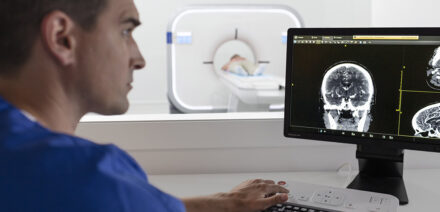-
Same Day Reporting Available
-
Bulk Billing Available
Understanding Radiologic Procedures and Preparations

X-rays
One of the most common imaging procedures, X-rays use electromagnetic radiation to create images of the body’s internal structures. Patients undergoing X-rays typically need minimal preparation. However, you may be asked to remove jewelry or clothing containing metal, as it can interfere with the imaging process. Our technologists will ensure your comfort and safety throughout the procedure, which typically lasts only a few minutes.
CT Scans
Computed Tomography (CT) scans provide detailed cross-sectional images of the body, offering valuable diagnostic information for a wide range of conditions. Depending on the area being scanned, you may be asked to fast for a few hours before the procedure or refrain from consuming certain foods or liquids. It’s important to inform your technologist if you have any allergies or medical conditions, as contrast agents may be used to enhance the images in some cases.
MRI Scans
Magnetic Resonance Imaging (MRI) scans use powerful magnets and radio waves to produce detailed images of soft tissues, organs, and bones. Patients undergoing MRI scans may need to remove metal objects such as jewelry, watches, or clothing with metallic components. You’ll be asked to lie still on a comfortable table while the scanner captures images, which can take anywhere from 15 minutes to an hour depending on the area being scanned.
Ultrasound
Ultrasound imaging uses high-frequency sound waves to create real-time images of the body’s internal structures. Unlike X-rays and CT scans, ultrasound does not involve radiation, making it a safe option for patients of all ages, including pregnant women. Depending on the area being examined, you may be asked to refrain from eating or drinking for a few hours before the procedure.
Mammography
Mammograms are specialized X-ray exams used for breast cancer screening and diagnosis. Patients undergoing mammography should avoid wearing deodorant, powders, or lotions on their chest area, as these substances can interfere with the imaging process. Our compassionate staff understands the sensitive nature of mammograms and strives to provide a supportive environment for all patients.
Bone Density Scans
Also known as DEXA scans, bone density scans are used to assess bone health and diagnose conditions such as osteoporosis. Patients undergoing bone density scans typically do not require any special preparation, though you may be asked to avoid taking calcium supplements on the day of the exam.
At Precise Radiology, we’re committed to providing our patients with the highest quality imaging services in a comfortable and caring environment. Whether you’re visiting us for a routine screening or a more specialized diagnostic procedure, our experienced team is here to guide you every step of the way. If you have any questions or concerns about your upcoming appointment, don’t hesitate to reach out to our friendly staff. Your health and well-being are our top priorities, and we’re honored to be a part of your healthcare journey.



